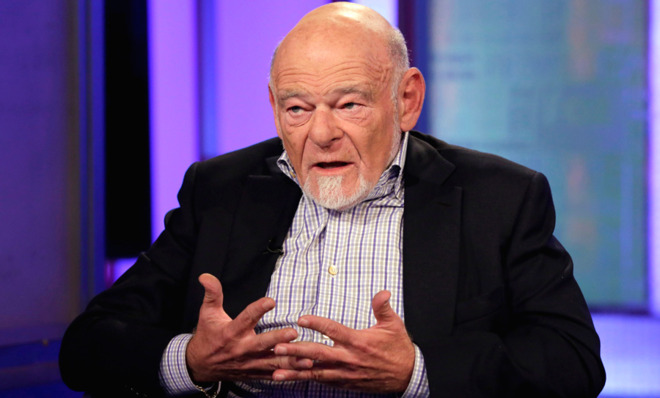The top 1 percent don't work harder for their money — they work less
And that is their advantage

A free daily email with the biggest news stories of the day – and the best features from TheWeek.com
You are now subscribed
Your newsletter sign-up was successful
Billionaire Sam Zell this week defended controversial billionaire Tom Perkins' claim that the top 1 percent are being persecuted in the same manner the Nazis persecuted Jews.
"I guess my feeling is that he's right," Zell said when asked by Bloomberg's Betty Liu how he felt about Perkins' statement. "The 1 percent are being pummeled because it's politically convenient to do so."
He added: "The problem is that the world and this country should not talk about envy of the 1 percent. It should talk about emulating the 1 percent," he said. "The 1 percent work harder. The 1 percent are much bigger factors in all forms of our society."
The Week
Escape your echo chamber. Get the facts behind the news, plus analysis from multiple perspectives.

Sign up for The Week's Free Newsletters
From our morning news briefing to a weekly Good News Newsletter, get the best of The Week delivered directly to your inbox.
From our morning news briefing to a weekly Good News Newsletter, get the best of The Week delivered directly to your inbox.
Is he right? Does a CEO who spends 60 hours a week in meetings really work harder than a fast food employee awakening at 6 a.m. every morning to flip hamburgers for 60 hours a week?
Ultimately, there's no way to say because these are different jobs fulfilled by different people with different capacities. There's no objective measurement to measure how hard you work, only how you long worked or in what capacity.
Let's take Zell's statement at face value, though, and suppose he believes that income is a good proxy for hard work. In that scenario, the CEO with a million-dollar salary is providing a million dollars of goods and services to other people in the economy, and thus $975,000 more than the burger flipper making just $25,000 dollars. But that is just a tautology, and there is no reason to believe that the amount you earn is necessarily the amount of value you create. Do reckless bankers who periodically blow up the economy and require taxpayer bailouts create an amount of value equal to their income? How about those who inherit their wealth? And on the other hand, how about people who care for a disabled spouse or child or elderly relative for which they receive zero monetary compensation? On that level, income and hard work don't even seem correlated.
What we can say objectively, though, is that less of the top 1 percent's income comes from work. That's because the top 1 percent — and even more so for the top 0.1 percent — make a heck of a lot of money from capital gains. Thirty-eight percent of the top 1 percent's income consists of gains from capital, meaning stock dividends, bond interest payments, rents on land and property, etc. For the top 0.1 percent, that's 51.9 percent of their income. The top 1 percent take home above 75 percent of all capital gains. Meanwhile, for the bottom 80 percent, just 0.7 percent of their income comes from capital gains. So for the top 1 percent, getting money is often a function of receiving a return on capital instead of working.
A free daily email with the biggest news stories of the day – and the best features from TheWeek.com
This illustrates that ultimately, working hard may not be everything that it's cracked up to be. You could work 80 hours a week out in the hot sun making mud pies, but that still wouldn't mean they are worth anything on the market. All your work then would be for nothing. Similarly, it might take 10 hours of hard work to knit a sweater by hand, while a person with a machine might be able to knit 10 sweaters in that time, and another person who owns a sweater factory in China might be able to crank out 10,000 in the same time with practically no effort.
That, I think, is the key difference between the rich and everyone else. They have the financial, educational, and social capital to accumulate an income without having to work so hard.
So it's not irrational for the poor to envy the rich. Because emulating them is not about hard work, as Zell claims. It's about opportunities and pure access to capital.
John Aziz is the economics and business correspondent at TheWeek.com. He is also an associate editor at Pieria.co.uk. Previously his work has appeared on Business Insider, Zero Hedge, and Noahpinion.